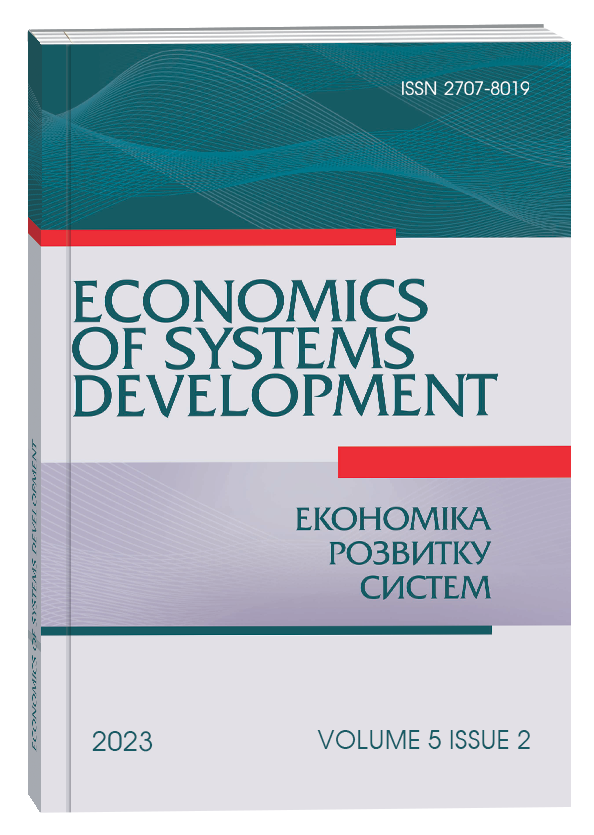DETERMINANTS OF AUDIT AND FORENSIC ECONOMIC EXAMINATION IN THE SYSTEM OF FINANCIAL CONTROL OF LOCAL BUDGETS
Abstract
Strengthening the fight against economic crimes and fraud in local budget institutions requires improvement of financial control. The article is devoted to the issue of ways and content of introduction of audit and forensic economic examination tools into the internal control system. The research method chosen was an empirical assessment of the state and prospects for improving the control system through a questionnaire. The structure of the questionnaire included grouping of questions into four sections. Questions of informational nature are included in the first section, characteristics of internal control and audit are included in the second section of the questionnaire. The third section contained the issues of contact with external control and audit institutions, and the fourth section assessed the potential capabilities and intentions to use internal and external audit tools and forensic economic expertise. The quality of the survey was ensured by its preliminary pilot testing. The selection of respondents from local government institutions in the five oblasts ensured representation in the survey. Technically, the questionnaire was distributed through open official work emails of representatives of institutions using Google form, which ensured open distribution and anonymity of responses. The paper analyses the results of the responses, which showed the state of the internal control system and the directions of its development. The study provides a comparative assessment of the state of the internal control system and the availability of internal audit services in local self-government institutions. The publication considers the results of questionnaires on the state of interaction between local self-government institutions and external auditors in terms of audits of annual financial statements and consulting. It also identifies the extent of the need to supplement the internal control system with external audit tools. The author identifies differences in assessments of the needs for interaction with external auditors and forensic experts, and substantiates the directions for improving the internal control system of local budget institutions. It was also suggested that the effectiveness of control in preventing, detecting and combating fraud should be strengthened based on foreign experience of cooperation with external auditors and forensic experts.
References
Hegazy S., Sangster A. & Kotb A. (2017) Mapping forensic accounting in the UK. Journal of International Accounting, Auditing and Taxation, no. 28, pp. 43–56.
Tytykalo R. S. (2023) Osoblyvosti funktsionuvannia mistsevoho samovriaduvannia u period dii voiennoho stanu. [Peculiarities of the functioning of local self-government during the period of martial law] Juris Europensis Scientia, no. 2, pp. 111–117. Available at: http://jes.nuoua.od.ua/2-2023 (accessed December 10, 2023).
Biuro ekonomichnoi bezpeky Ukrainy: ofitsiinyi sait. [Bureau of Economic Security of Ukraine] Available at: https://esbu.gov.ua/news/na-cherkashchini-uperedzheno-roztratu-ponad-20-mln-grn-byudzhetnih-koshtiv (accessed December 10, 2023).
Klymko T. Yu., Melnyk O. O. (2015) Korporatyvne shakhraistvo: realii suchasnosti. [Corporate fraud: modern realities.] Scientific Bulletin of Uzhhorod University, Series "Economics", vol. 2, pp. 185–190. Available at: http://nbuv.gov.ua/UJRN/Nvuuec_2015_2_33 (accessed December 10, 2023).
CIPFA (2018) CIPFA fraud and corruption tracker survey summary report 2018 (CIPFA). Available at: ///C:/Users/Irina/Downloads/CIPFA%20Fraud%20and%20Corruption%20Tracker%20Summary%20Report%202018.pdf (accessed December 10, 2023).
May T. & Bhardwa B. (2018) Organised crime groups involved in fraud. Palgrave Macmillan
Stetsiuk O. Ya., Chubai V. M. (2023) Vyiavlennia shakhraistva na pidpryiemstvi: alhorytm dii ta oznaky, yaki vkazuiut na znachnyi ryzyk naiavnosti shakhraiskykh dii [Detection of fraud in the company: algorithm of actions and signs that indicate a significant risk of the presence of fraudulent actions]. Economy and Society, no. 48. Available at: https://economyandsociety.in.ua/index.php/journal/issue/view/48 (accessed December 10, 2023).
Levi M. & Burrows J. (2008) Measuring the impact of fraud in the UK: A conceptual and empirical journey. British Journal of Criminology, no. 48(3), pp. 293–318.
CIPFA Counter Fraud Centre (2020) Mizhnarodnyi standart audytu 240 «Vidpovidalnist audytora, shcho stosuietsia shakhraistva, pry audyti finansovoi zvitnosti».[ISA 240, The Auditor's Responsibility to Consider Fraud and Error in an Audit of Financial Statements] Available at: https://www.apu.net.ua/attachments/article/1151/2017_chast1.pdf (accessed December 10, 2023).
Huber D. & DiGabriele J. A. (2014) Research in forensic accounting – what matters? Journal of Theoretical Accounting Research, no. 10(1), pp. 40–70.


